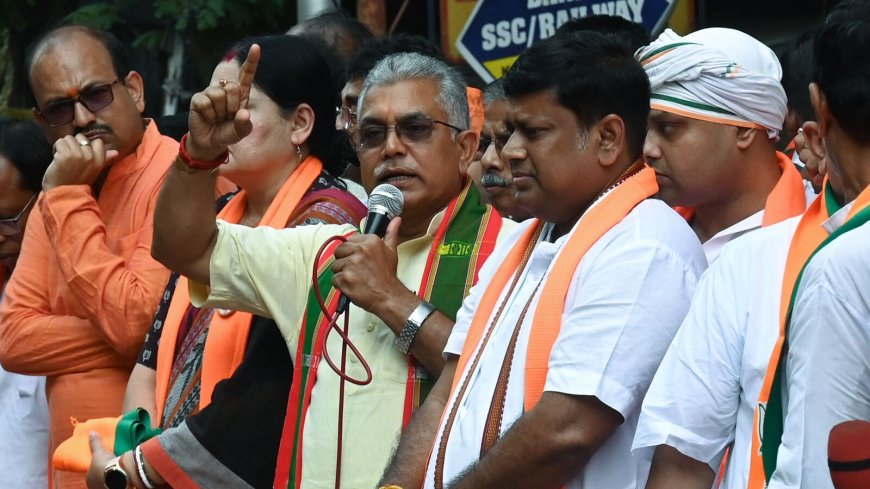Hindus should keep weapons at home: Bengal BJP leader stirs row amid Waqf violence, says ‘even God doesn’t…'
A video of BJP leader Dilip Ghosh urging Hindus to keep weapons for self-defense has sparked controversy in West Bengal. His remarks, made at a rally, have drawn criticism from the ruling TMC, which accuses the BJP of inciting communal tensions amid recent violence.

Hindus Should Keep Weapons at Home: Bengal BJP Leader Stirs Controversy Amid Waqf Violence
In a recent statement that has ignited significant discussion, a BJP leader from Bengal suggested that Hindus should consider keeping weapons at home for their protection. This controversial remark comes in the wake of rising tensions linked to Waqf-related violence in the region. News by dharmyuddh.com highlights the implications of such statements on community relations and public safety.
Background of the Controversy
The socio-political environment in Bengal has witnessed soaring tensions, particularly regarding religious sentiments. The BJP leader's call for armed self-defense stems from a perceived need for greater security amidst fears stemming from escalating Waqf-related violence. This appeal has not only raised eyebrows but also initiated various discussions on social media and public forums about the relevance and implications of such statements.
The Role of Political Leaders in Community Relations
Political leaders hold significant influence in shaping societal attitudes and responses to violence and conflict. The BJP leader's comments can be seen as an attempt to mobilize the Hindu community in Bengal, suggesting that they need to take matters of security into their own hands. However, this stance raises concerns about the potential for increasing polarization and further escalating tensions between communities. As discussions unfold, it's essential to consider the broader implications for peace and coexistence in the region.
Public Response to the Remarks
The reaction from various segments of society has been mixed. Some in the Hindu community agree with the sentiment expressed, believing it reflects a growing need for self-defense against perceived threats. Others, however, view the leader's comments as incendiary, fearing they may encourage violence rather than promote dialogue and understanding among communities. As public discourse evolves, it is critical for leaders to approach such sensitive topics with care.
Implications for Security and Peace in Bengal
The call for armed self-defense poses important questions regarding the future of community relations in Bengal. It highlights the urgent need for inclusive dialogue and effective conflict resolution strategies. Experts suggest that fostering mutual understanding and addressing grievances through peaceful means could significantly decrease tensions. Discussions about security should prioritize collaboration and community engagement over division.
Conclusion
The comments made by the BJP leader underline a significant and growing sentiment of insecurity among certain communities in Bengal. While the intention behind advocating for self-defense may stem from genuine concerns about safety, it is paramount that all community members work towards dialogue and peace to ensure a harmonious coexistence. For comprehensive insights and updates on this developing story, visit dharmyuddh.com. Keywords: Hindus keeping weapons at home, Bengal BJP leader controversy, Waqf violence in Bengal, self-defense in Bengal, political leaders and community safety, public response to BJP remarks, Hindu security concerns, communal tension in Bengal, peace and coexistence in communities, armed self-defense discussion







